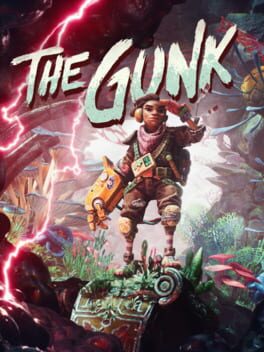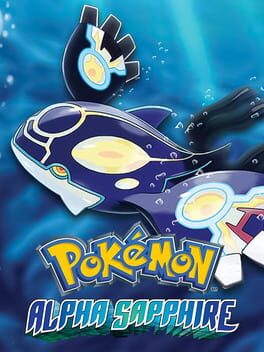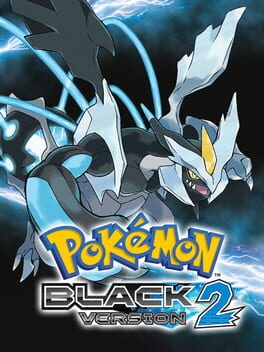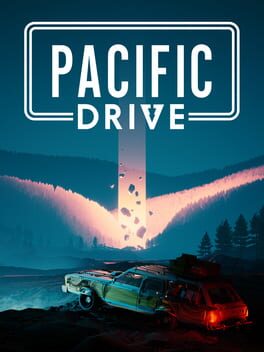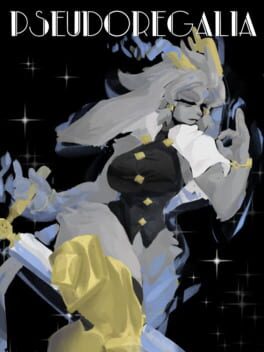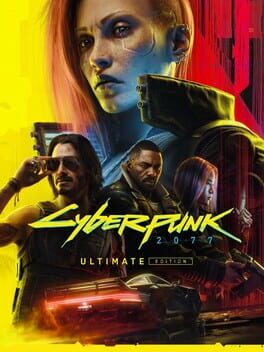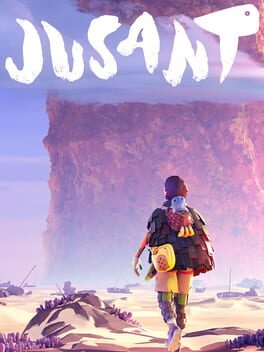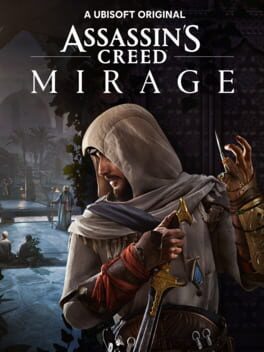Noctimor
BACKER
2021
Weak mechanical premise, but the rest left me pleasantly surprised! Voice performances are really good and fun, and the soundtrack's strong at setting the mood throughout. Really good looking too, I almost get a clay or tilt shift vibe from it, something about it just really looks impressive in motion. I simply am not immune to having a good time on a fourish hour adventure
A really good time. I've said before that I really enjoy an element of remixing in Pokémon games, playing with established locations and creatures and mechanics, and another part I really value is when the game really leans into its mythos, makes it a big part of the narrative and the region, and this game has both in spades. Not only is it a successful remix of the originals, it also majorly adds upon the story and mechanics of X/Y and really makes it its own, completes it. It opens up in a big way by the end and had me spending a lot more time in it since it's so compelling to see every bit. The new flight mechanics may seem like they create a greater sense of conquering the game world, fitting it into your palm, but instead I found it made the world feel bigger, full of possibilities and secrets. It's essentially that feeling that makes it so great.
I was somewhat down on B/W, but learned that what I really appreciate in Pokémon is the element of remixing and adding onto that world. B2/W2 is an incredible payoff with a shaking up of the whole region and a sequel story that feels more like an extended epilogue, continuing that conversation and bringing more into play.
2024
What’s killing Pacific Drive for me is that I find the loop pretty dull. There’s not much to driving, the procedural loot map stuff is really mind numbing. A lot of the difficulty from the later areas comes from the hazard modifiers, which are mostly turning the knobs up on radiation, damage taken etc. A well-kitted car doesn’t feel all that different to travel in, you’re just turning the knobs up on your car’s attributes to keep up. 10 hours in, I get in a big ol’ crash — this part of the game’s good, just reacting to hazards, messing up and paying for it — but as I think of the loop I’m gonna have to participate in to make up for it, how little it differs from the usual routine, how much I’ve already been avoiding the loot cycle, I think I’m good! There’s just nothing to break it up. The narrative’s pretty slow, propped up exclusively by one-sided conversations with performances that’d be more enjoyably hammy if they weren’t the only thing driving the story, which consequentially feels pretty thin — not that I needed more than “haunted wagon, haunted Washington” to check it out anyway. Killer mood, mood killer to play.
2023
Delivers such a dreamy experience in its short runtime. At first I worried about hitting a slump and getting lost in its halls, but as you acquire more movement mechanics you really start coasting along and just enjoy navigating around. Fuck a map. In the later hours I did get lost quite a bit, but in that time I enjoyed being in it all the same. Maybe I missed having a little more of the designer's hand showing, but I think it's part of its strength, the sparseness of what's stated, a willingness to understate the critical path. A really wonderful dream that feels at home with the best of the Saturn. Buy the soundtrack!
I feel a little apologetic to Starfield, deeply unflattering to start this right after. Genuinely surprised at how much roleplay thinking it facilitates through the dialogue and diverging skill trees, constantly found myself talking through my narrative and musing about what the next playthrough could look like. I like my corpo-brained V who only knows how to survive by siding with the System, and thinking on that line felt like it paid off when I hit the Phantom Liberty stuff.
Night City is sprawling, to great effect; it's gorgeously layered and vertical and feels unique in the space. The narrative, in turn, feels like it aims to sprawl in the same way but feels more scattered than anything; things happen in their own sections of the world but don't really come together, and it feels like the various character arcs being stuck in these really hurts them feeling like people. Panam and Judy felt less like storylines and more like rollercoasters -- a lot of the story felt like that, a theme park, and it kept me from feeling too invested in it. V just jumps around doing stuff ad nausea without there really feeling like a throughline there.
The stats and skill trees are great, it's fun to have enough technical knowledge to chime in during a convo, or really think about how your V's gonna specialize in encounters -- encounters I ultimately didn't get a lot out of. I felt the missions were at their best when it steered away from the bandit camp style -- walking straight into nightclubs, info gathering, weapons holstered, was where I found the most fun. The other stuff, whether it's full-on combat or a sneak-em-up takedown fest, all feels the same. The skill trees let you decide your tools, and it's mostly up to you how easy or hard you make it for yourself, but nothing about the encounters really change; how you handle one is how you can handle them all. That feels endemic to this sort of game, where you can have wildly different sets of skills but need to accommodate them all.
I didn't get around to Cyberpunk until now, in it's 'ultimate' form, version 2.1 with the expansion content. After rolling credits, I read around, checking out reviews from around launch. The game's built a reputation now for being transformed from what it was, but it turns out I still recognize my experience in that game from three years ago.
Night City is sprawling, to great effect; it's gorgeously layered and vertical and feels unique in the space. The narrative, in turn, feels like it aims to sprawl in the same way but feels more scattered than anything; things happen in their own sections of the world but don't really come together, and it feels like the various character arcs being stuck in these really hurts them feeling like people. Panam and Judy felt less like storylines and more like rollercoasters -- a lot of the story felt like that, a theme park, and it kept me from feeling too invested in it. V just jumps around doing stuff ad nausea without there really feeling like a throughline there.
The stats and skill trees are great, it's fun to have enough technical knowledge to chime in during a convo, or really think about how your V's gonna specialize in encounters -- encounters I ultimately didn't get a lot out of. I felt the missions were at their best when it steered away from the bandit camp style -- walking straight into nightclubs, info gathering, weapons holstered, was where I found the most fun. The other stuff, whether it's full-on combat or a sneak-em-up takedown fest, all feels the same. The skill trees let you decide your tools, and it's mostly up to you how easy or hard you make it for yourself, but nothing about the encounters really change; how you handle one is how you can handle them all. That feels endemic to this sort of game, where you can have wildly different sets of skills but need to accommodate them all.
I didn't get around to Cyberpunk until now, in it's 'ultimate' form, version 2.1 with the expansion content. After rolling credits, I read around, checking out reviews from around launch. The game's built a reputation now for being transformed from what it was, but it turns out I still recognize my experience in that game from three years ago.
2023
I feel like the good parts get stretched too thin. Storytelling's a complete miss for me, with a lot of lengthy journal entries and abandoned living spaces that I didn't really get much out of. I don't even know what it was -- just the structure of things, I guess? You get a little diorama once you climb enough walls, and it just feels a little too detached from the game. The climbing's fun, and everything about setting up your rope's great, but especially around halfway through I felt like some segments ran long without really asking you to do anything meaningfully different. I thought about dropping it around then, but I got to the setpiece at the end -- I'm glad I did, it's neat! -- but I wish it took me there quicker. I know it's a hell of a complaint for a game that's what, four hours at most? But in that amount of time it genuinely wore pretty thin on me.
Baghdad is sick as hell, and it rocks to spend time in a Big Game world filled with middle eastern and Islamic imagery and languages that isn't milsim-adjacent. It's more of a shame, then, that the rich stories of conflicts and intrigue in 9th century Baghdad feel like they're flattened and pushed aside for the sake of Basim's journey, a tale that favors unearned reveals over meaningfully exploring the growth Basim goes through to become such a driven, prominent force in Valhalla.
The setting of a singular big city with fortresses within is great, there's a lot of open wilderness and busywork in the form of contracts, but it's easy to ignore for the benefit of a tighter game. Conflict is clunky and de-emphasized, which I welcome, and being outnumbered can even approach being a concern, but every tool in your kit feels hilariously overcapable that I avoided using them. It's enjoyable, though its obligations as an AC game threaten to deaden its pleasure at every turn.
The setting of a singular big city with fortresses within is great, there's a lot of open wilderness and busywork in the form of contracts, but it's easy to ignore for the benefit of a tighter game. Conflict is clunky and de-emphasized, which I welcome, and being outnumbered can even approach being a concern, but every tool in your kit feels hilariously overcapable that I avoided using them. It's enjoyable, though its obligations as an AC game threaten to deaden its pleasure at every turn.
2023
